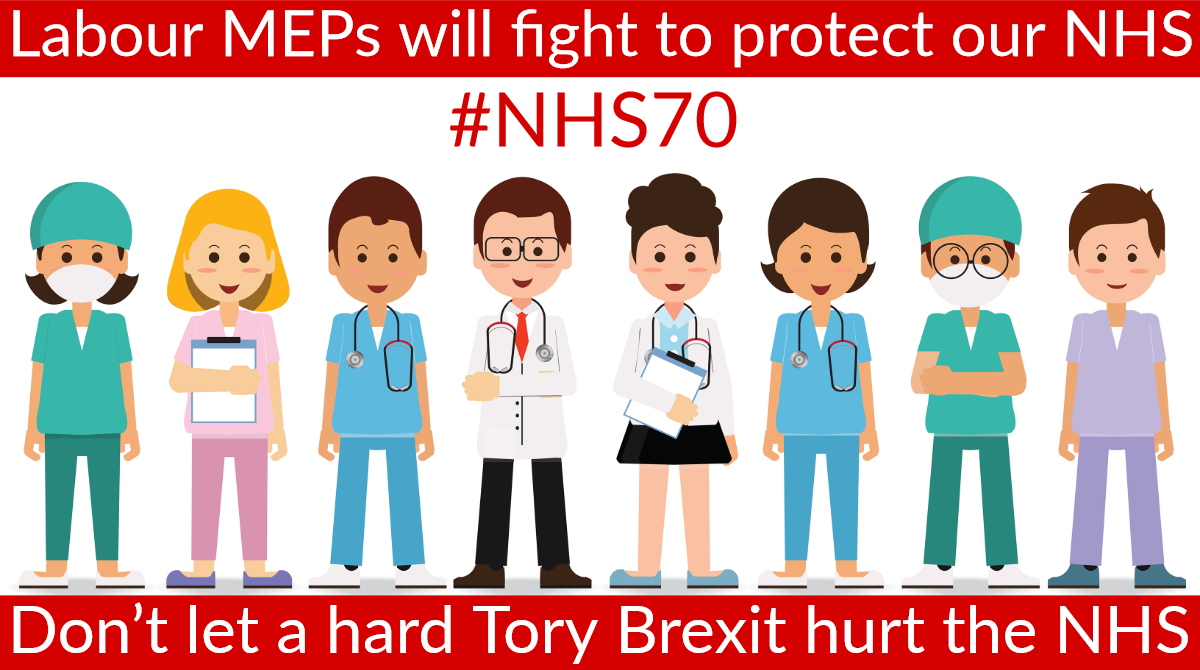My parents, who grew up through the 1920s and 30s, were at pains to tell me of the real fear that went with getting ill before the NHS came into being 70 years ago today. It wasn’t a fear of illness itself but of the cost of having to see the doctor.
For my parents’ generation the NHS was freedom from fear of illness. For my generation the NHS was about public health policies that eradicated Small Pox and Polio and provided effective mass healthcare that gave us, quite simply, longer lives.
70 years on, despite all the difficulties and challenges, the NHS is still delivering for the many. From 1997 onward the Labour governments pumped resources into the NHS increasing the budget of the service in real terms year on year and reversing the decline in wages and conditions of the staff on which the NHS depends. Labour’s clear objectives of improving critical care outcomes, reducing waiting lists, A&E waiting times and creating service standards for GP appointments produced real, measurable improvements in the experience of the vast majority of NHS patients. Importantly, patients were also given influence over how and where they are treated. Within a couple of years of Labour coming to office the term ‘winter crisis’ was no longer heard on the news. When Labour came to office the basis of the service was in question, when we left office the central principle was untouchable - Mr Cameron had no option but to borrow Labour words of commitment to the NHS.

In these days where, since the disastrous Health and Social Care Act of the Tory-Liberal coalition government and Mr Osborne’s funding squeeze we have the staff of the NHS to thank for keeping the service delivering for its patients. The NHS still delivers some of the best acute care you can find anywhere but cuts have undoubtedly damaged the service - longer waiting lists, a crisis in A&E and the difficulty of getting to see a GP are the most obvious outward signs.
But the challenges for the NHS go well beyond that and some of them would exist whoever was in power - though at least with better funding they would be of a lesser degree. The founders of the NHS could never have imagined the mind-blowing advances in clinical care and medical technology that benefit patients in modern hospitals. Neither could they have conceived of the cost. Accordingly, the budget of the acute sector can only head in one direction - its demands are infinite as the possibilities of care technology continue to confound the imagination. Over my time as MEP it has been a genuine privilege to be able to see some of these scientific advances first hand - but very little of it is cheap and every step forward presents a funding challenge - at least at the outset. These are problems of success for the NHS.
Other challenges include the impact of the lifestyles of modern society on public health. While huge positive strands have been made (remember when the NHS kicked off Big Tobacco was still telling people smoking was a healthy thing to do) other problems have arisen. The plague of obesity, increases in diabetes and dementia, the need to treat addiction to name but a few more problems of success. Why success? Simply, the fact is a society in which incomes are, despite increasing inequalities, generally higher than in the 40s, 50s and 60s and the changing profile of work patterns and consumer pricing of processed vs fresh food has an effect on health. Also, and importantly, increasing life expectancy is a great result - but the side effect is that illnesses of aging become more common problems while the changing profile of the tax base affects our ability to fund the NHS and social care. Did I mention mental health services? And there is so much more.
Then there is Brexit - which will damage medical research, hurt reciprocal care, have a dramatic effect on NHS staffing and potentially create a brain drain of the best and the brightest. You can read about all these things elsewhere on this blog. As Labour MEPs we are constantly raising the issues that will hit the NHS and seeking to limit the damage. We’ve done some good, but a no-deal Brexit will have a drastic impact and negate those small steps of progress
If the NHS is to make it through its first century as the sort of service that can continue to deliver for the many as it has to date then it will require money. But the challenges go beyond money, progressive politicians to do more than simply promise to promise resources and grasp the reality that the negative experiences of patients in non-acute areas of the service require different thinking, that personal responsibility for personal health is a tough nut that’s never been cracked. This is a task for progressives, social democrats and democratic socialists because to leave it to others will see the NHS and its founding principles undermined. It remains at 70, Labour’s greatest lasting achievement.



